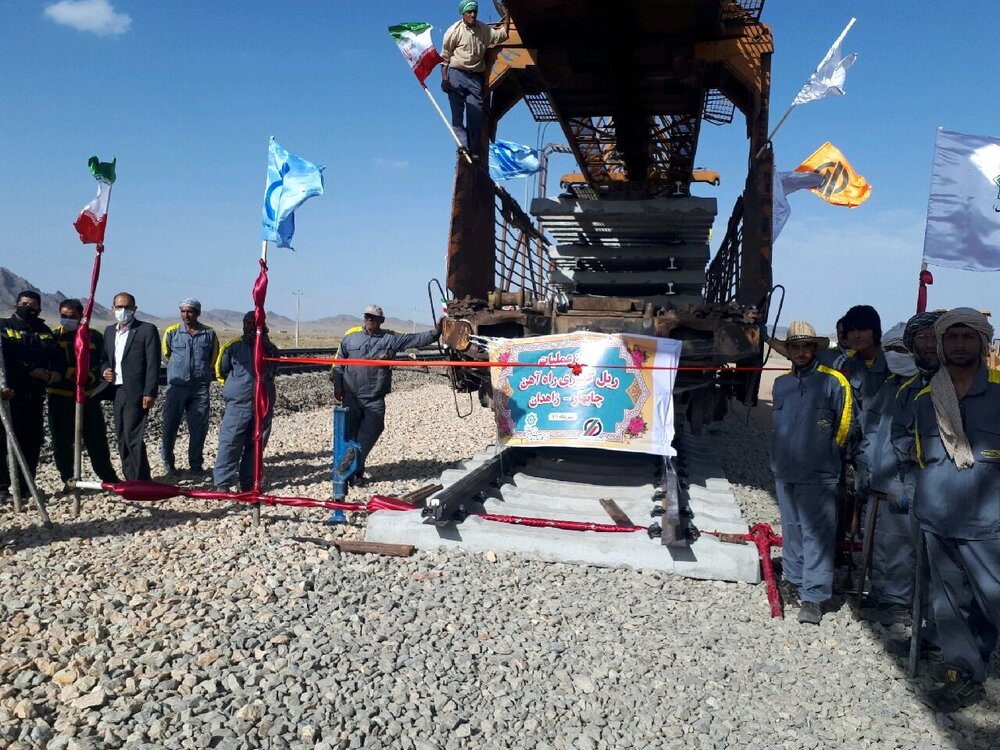Iran’s Ports and Maritime Organization has dismissed a report that New Delhi was dropped from the Chabahar railway project after it showed reluctance in investing due to the US sanctions.
“Iran has only signed two agreements with Indians for investment in Chabahar: one is related to port’s machinery and equipment, and another — to India’s investment to the tune of $150 million,” Iran’s Mehr news agency quoted Farhad Montaser, a Deputy Head for Ports and Economic Affairs at the organization, as saying on July 15.
He called the report ‘totally false’ saying that Iran has not inked any deal with India regarding the Zahedan-Chabahar railway, and added that sanctions have nothing to do with the cooperation between Iran and India in Chabahar.
“We had a list of Indian investments in Chabahar port, which also included the issue of Chabahar railway infrastructure and the railway, but during the negotiations, it was not agreed,” Montaser said.
Previously, Iran’s government announced its intent to move ahead with the construction of a railway line from Chabahar port to Zahedan without any assistance from India due to delay in funding. India has been dropped four years after the project was finalized as part of a broader trilateral agreement.
The project is expected come online by March, 2022, but will be completed without any assistance from India.
Iran plays an important role in India’s connectivity to Afghanistan via the Chabahar port along the coastline of Iran. Earlier last year, India took over operations at Chabahar, opening a new strategic route connecting Iran, India and Afghanistan, and bypassing India’s rival — Pakistan. Pakistan has been developing its Gwadar port with Chinese assistance. Chabahar is expected to help India gain access to markets in central and west Asia.
The project was part of India’s commitment to the trilateral agreement with Afghanistan and Iran to build an alternate trade route to Afghanistan and Central Asia, which was finalized during Indian Prime Minister Narendra Modi’s visit to Tehran in 2016 after he signed an agreement with the Iranian President Hassan Rouhani and Afghanistan President Ashraf Ghani.
Indian Railways Construction Ltd (IRCON) had promised assistance to the railway line project besides financing worth $1.6 billion. However, the work was never started as the United States imposed sanctions on Iran.
In 2016, Iran and India signed a deal to equip and operate containers and multi-purpose terminals at Shahid Beheshti port in Chabahar with a capital investment of $85.21 million and an annual expenditure of $22.95 million on a 10-year lease.
Following the withdrawal from the 2015 Iran nuclear deal in May 2018, the United States pressured countries to reduce oil imports from Iran, threatening economic repercussions if they do not. This presented a problem for India, which was the second-largest Iranian oil buyer after China. It has limited its monthly purchases to 1.25 million tons, or 15 million tons per year (300,000 thousand barrels per day), after the US sanctions on Iran.







 Iran's senior military leaders described the drone and missile attack on Israel on April 14 night as “successful".
Iran's senior military leaders described the drone and missile attack on Israel on April 14 night as “successful".
 The number of evacuees from flooded areas in Kazakhstan has reached 97,852 people, including about 32,856 children since March 27.
The number of evacuees from flooded areas in Kazakhstan has reached 97,852 people, including about 32,856 children since March 27.
 Azerbaijan officially unveiled the logo for the upcoming 29th session of the Conference of the Parties to the United Nations Framework Convention o...
Azerbaijan officially unveiled the logo for the upcoming 29th session of the Conference of the Parties to the United Nations Framework Convention o...



